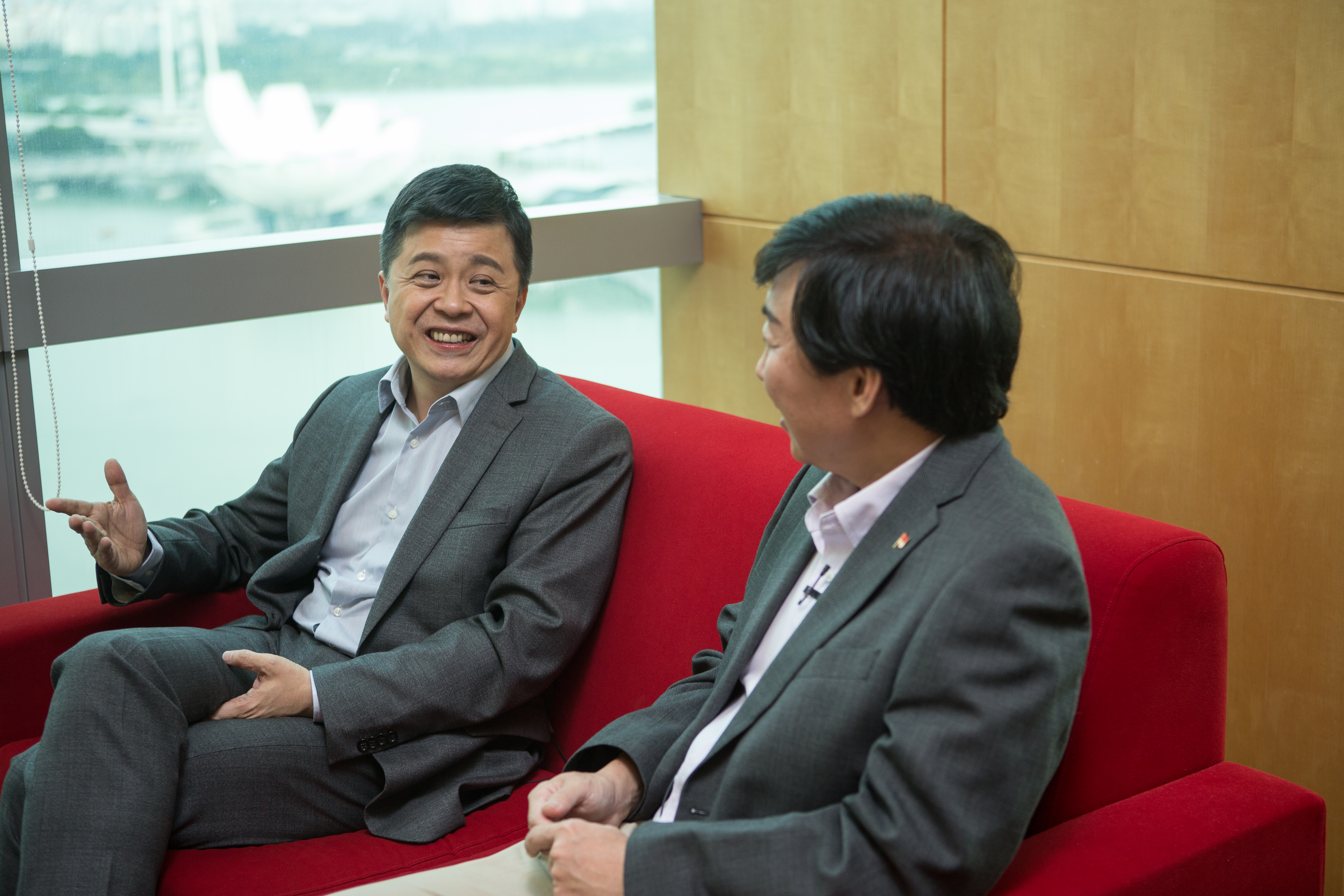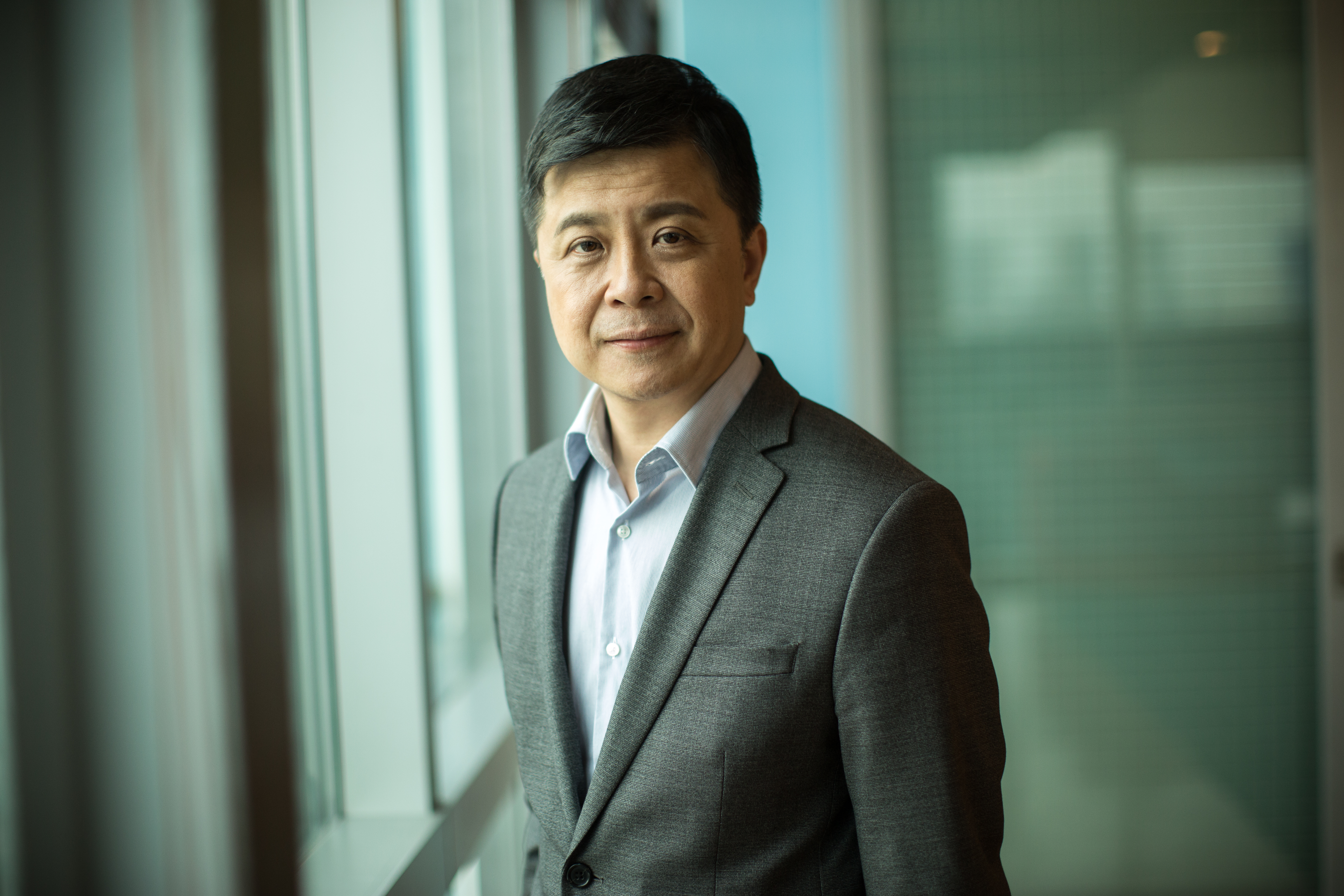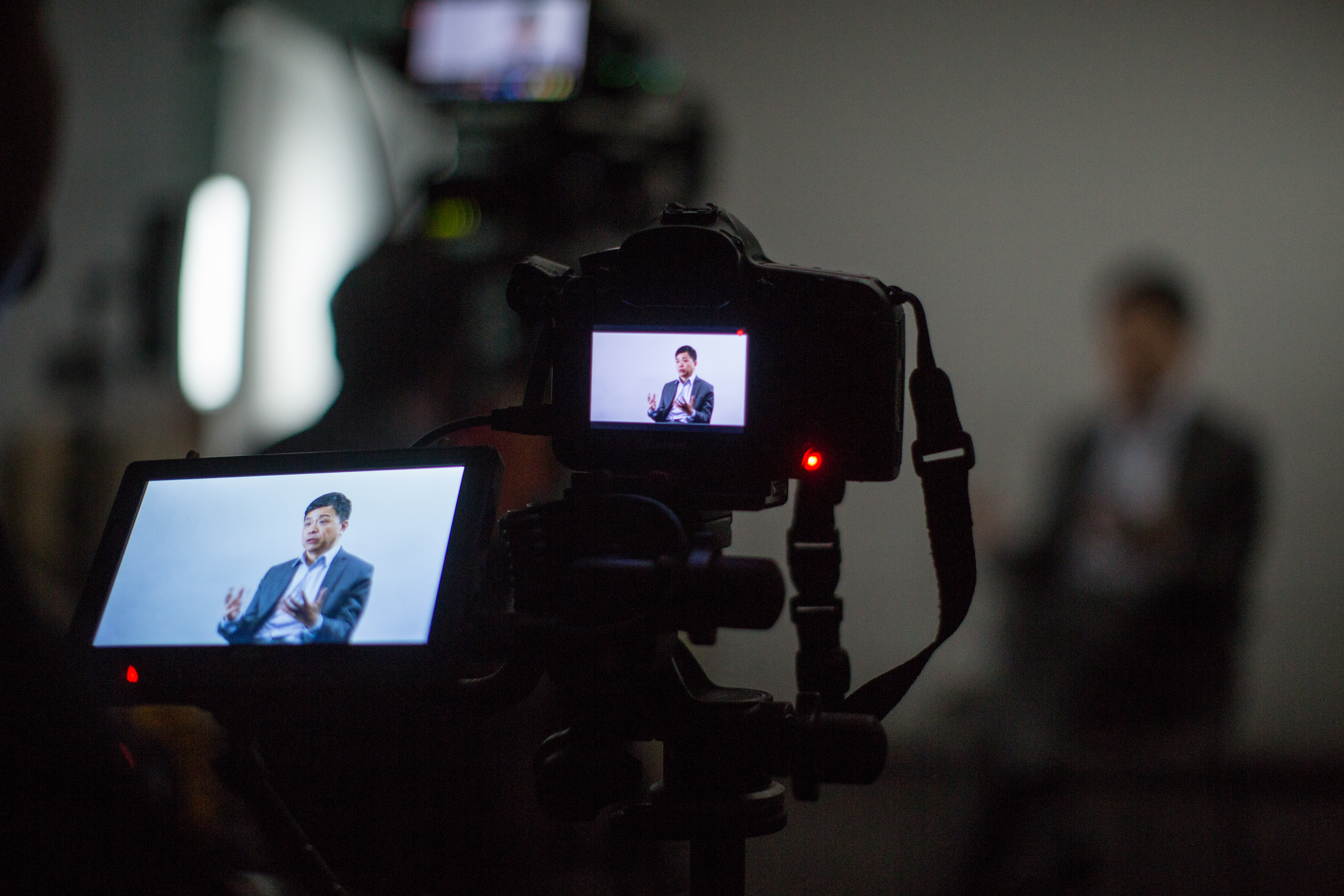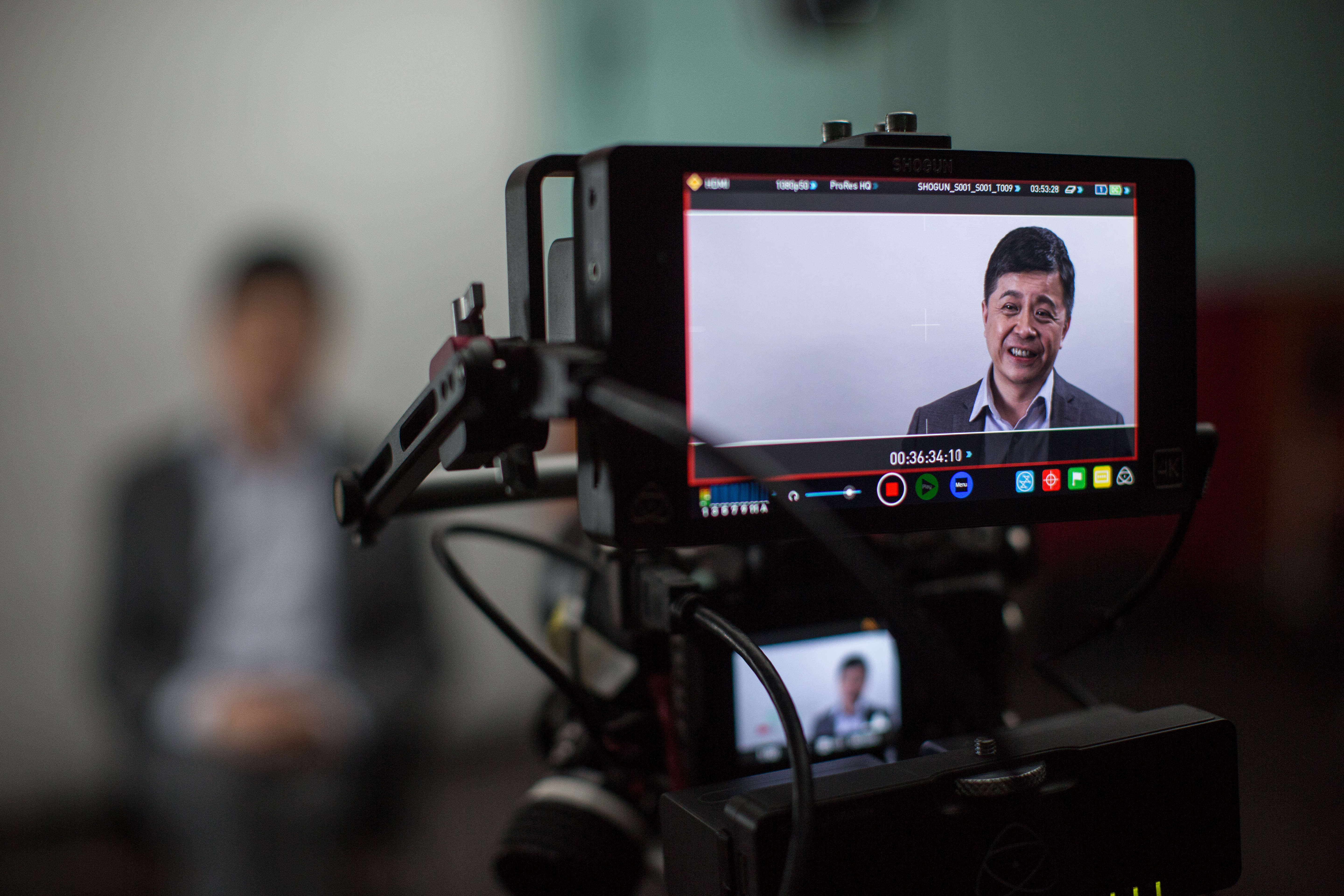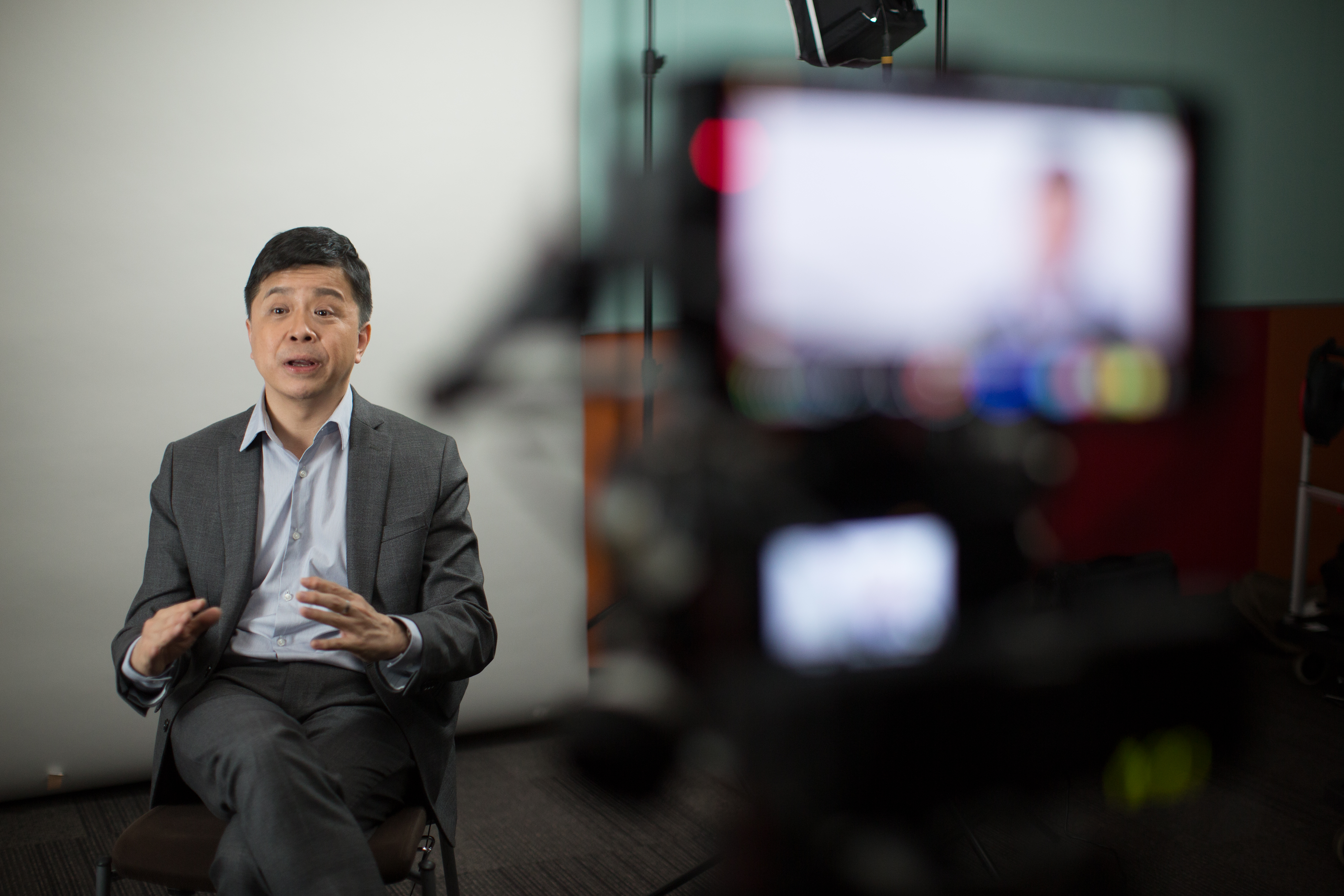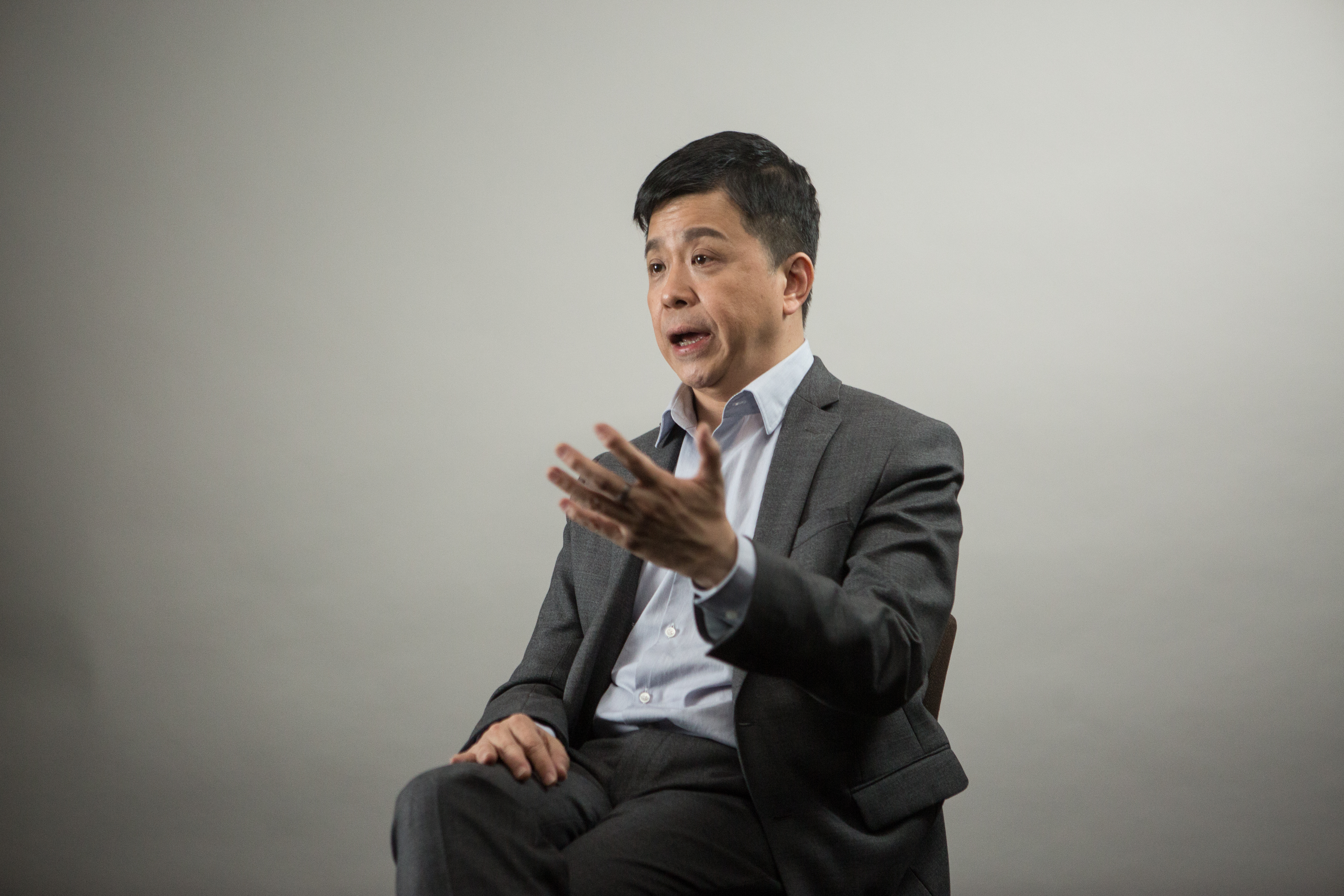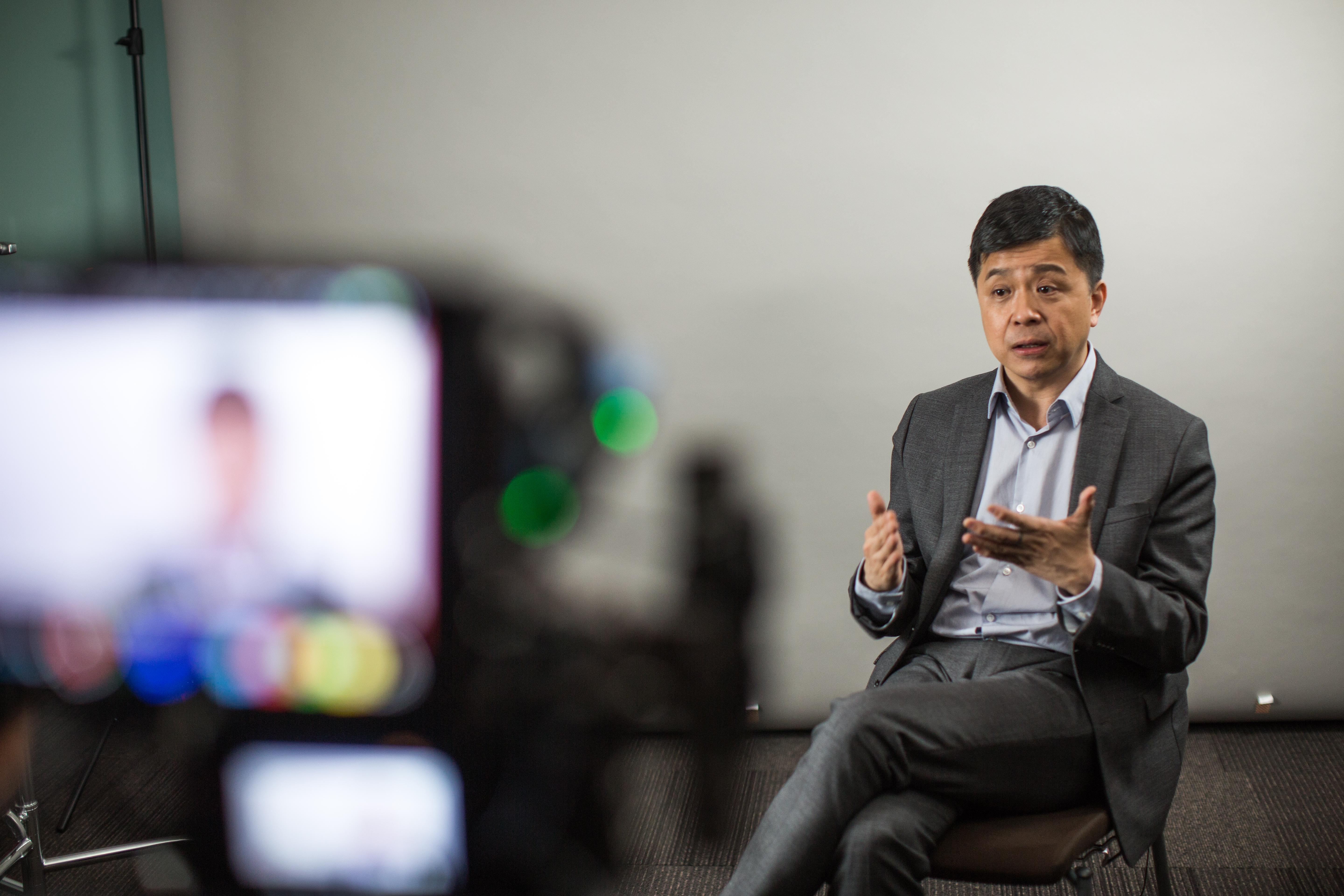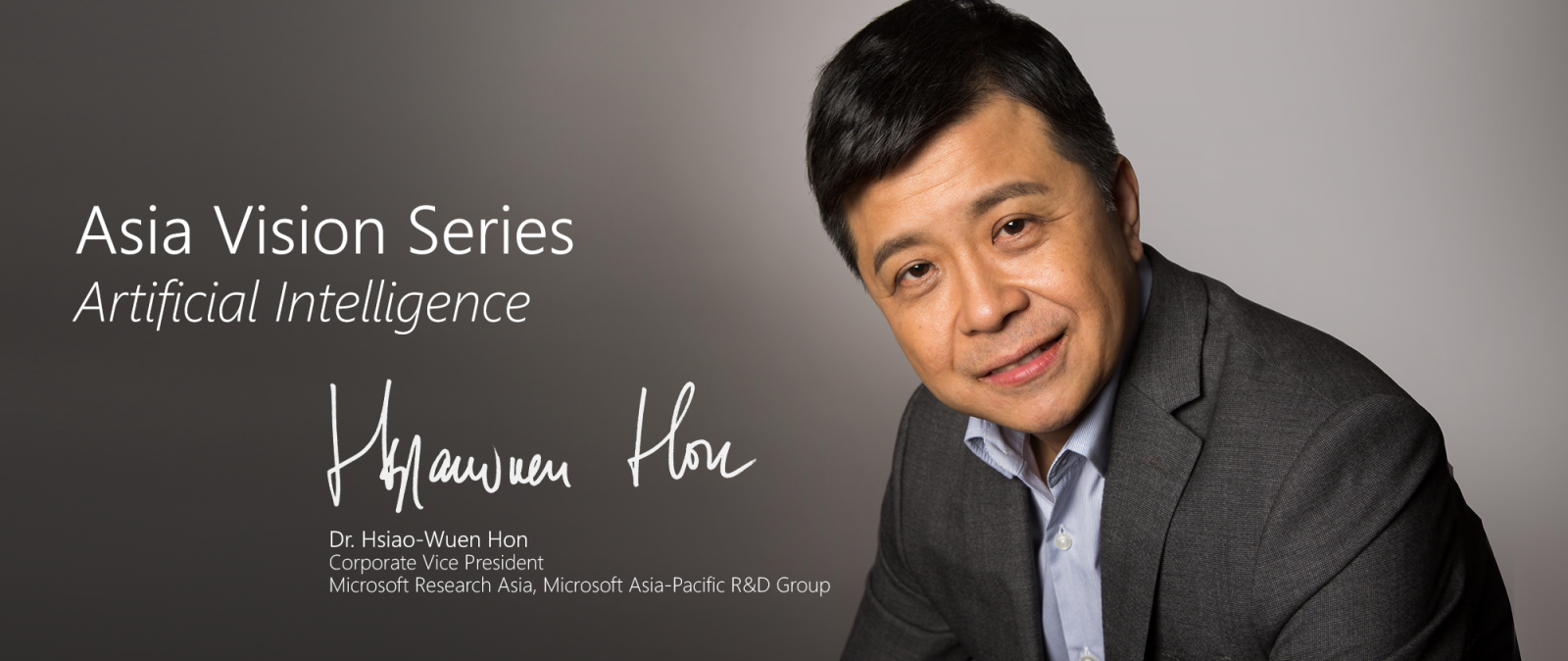
From industrial to invisible revolution
In our Asia Vision Series features we dive into key industry trends and issues with our subject matter experts and visionaries in the region. In part 3 of 3 in this interview, Koh Buck Song, author and editor of more than twenty books and former political supervisor for Singapore’s national broadsheet The Straits Times, speaks with Dr. Hsiao-Wuen Hon, corporate vice president of Microsoft Research Asia, Microsoft Asia-Pacific R&D Group – a thought leader in the field of innovation especially artificial intelligence. He shares his personal journey toward chasing his passion for innovation, and the relationship between artificial and human intelligence.
AI is like a guardian angel.
It always looks after you.
Reframing human thinking from ‘man vs machine’ to ‘man with machine’ will not happen easily or overnight, but it is necessary, as humanity is in an age in which technology is less and less confined to physical devices, and increasingly pervasive and embedded.
Microsoft calls this notion of technologies existing everywhere – and yet, seemingly “nowhere” – the “invisible revolution”. This major shift is powered by cloud computing and reliant on artificial intelligence (AI) such as machine learning, where machines get better at doing something as they receive and work with more data. “The highest value of AI is to help people and organizations make better decisions,” Microsoft’s Dr Hsiao-Wuen Hon observes.
But people do not use technology they do not trust, so how then to convince them to share even more information about themselves willingly?
Microsoft’s approach towards AI emphasizes trustworthiness and being respectful of users’ personal data. At the same time, it is also working towards giving applications a more human side, and ensuring that the ultimate goal of AI is aligned with its core mission of enhancing technology as an enabler. For example, smarter apps can do things like recognise faces and objects, and interpret natural language, to help people with visual difficultly “see” their surroundings better, and assist those with hearing difficulty to communicate.
Xiaoice reflects this humanizing of apps through conversations as a platform, a concept Microsoft has been driving. Most natural conversations happen when people chat on social media platforms, making it the perfect starting place for Xiaoice to learn how to analyse human sentiment and communicate empathy.
The highest value of AI is to help people and organizations make better decisions…
Language is becoming the new main user interface (UI) layer in an increasingly rich ecosystem of conversations that includes people to people, people to their personal digital assistant, people to bots and in the future – even personal digital assistant to bot!
Microsoft also recently announced that it would be making its bot framework available to all. This adds weight to its belief that new technologies should be available to everyone, regardless of their circumstances. Dr Hon finds this incredibly meaningful, as anyone, not just the wealthy, can have their own personal assistant to make their lives more productive.
AI is also improving the quality of life. Another project that Dr Hon is proud of is Urban Air by Microsoft Research Asia, which uses data mining and machine learning techniques to predict real-time, fine-grained air quality information throughout a city. Based on data reported by existing monitoring stations and data sources observed in the city, such as meteorology, traffic flow, human mobility, structure of road networks, and points of interest, Urban Air can determine air quality spatially (by sq km) or temporally (hourly even into the future). Insights are then used by individuals to plan for outdoor activities and by government departments in China to regulate congestion in red alert zones to bring air quality levels down to a healthy green.
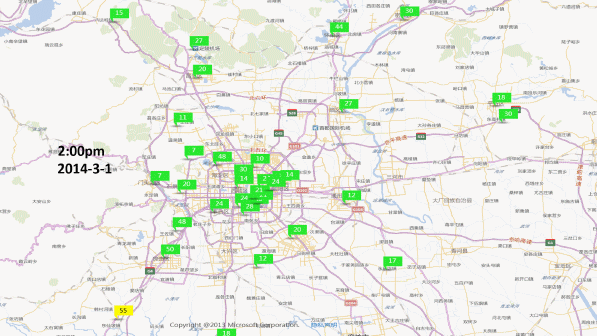 Bot frameworks, machine learning, and cognitive services – all three are part of the Cortana Intelligence Suite, Microsoft’s ambition to transform data into intelligent action. The Cortana Intelligence Suite is crucial to the rise of the invisible revolution, which sees humans and machines complementing each other even more to move society forward and make lives better for everyone.
Bot frameworks, machine learning, and cognitive services – all three are part of the Cortana Intelligence Suite, Microsoft’s ambition to transform data into intelligent action. The Cortana Intelligence Suite is crucial to the rise of the invisible revolution, which sees humans and machines complementing each other even more to move society forward and make lives better for everyone.
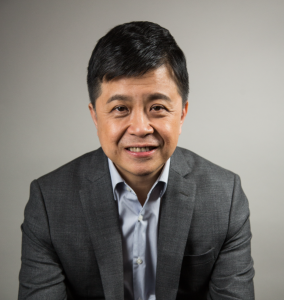 Dr. Hsiao-Wuen Hon
Dr. Hsiao-Wuen Hon
Corporate Vice President, Microsoft Research Asia
Microsoft Asia-Pacific R&D Group
Dr. Hon drives Microsoft’s strategy for research and development activities in the Asia-Pacific region, as well as collaborations with academia. He has been with Microsoft since 1995, joining Microsoft Research Asia in 2004 overseeing research in Internet search, speech and natural language, systems, wireless and networking. In addition, he founded and managed the Search Technology Center (STC) from 2005 to 2007, and has overseen the development of Bing in Asia Pacific.
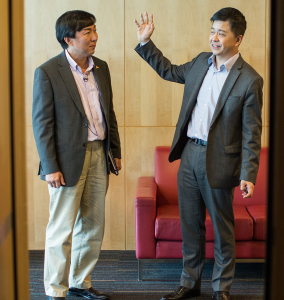 Koh Buck Song
Koh Buck Song
Koh Buck Song is an author who has written and edited over twenty books, and a consultant in branding, communications strategy and corporate social responsibility in Singapore. He drove the positioning of Singapore as a “global entrepolis” as former Head of Marketing, Corporate Communications and Strategic Planning at the Economic Development Board from 1999 to 2005. Buck Song was also a former a political supervisor for The Straits Times. He graduated from the University of Cambridge and the University of London in the United Kingdom, and from the John F. Kennedy School of Government at Harvard University in the US, where he was a Mason Fellow and earned a master’s degree in public administration.





